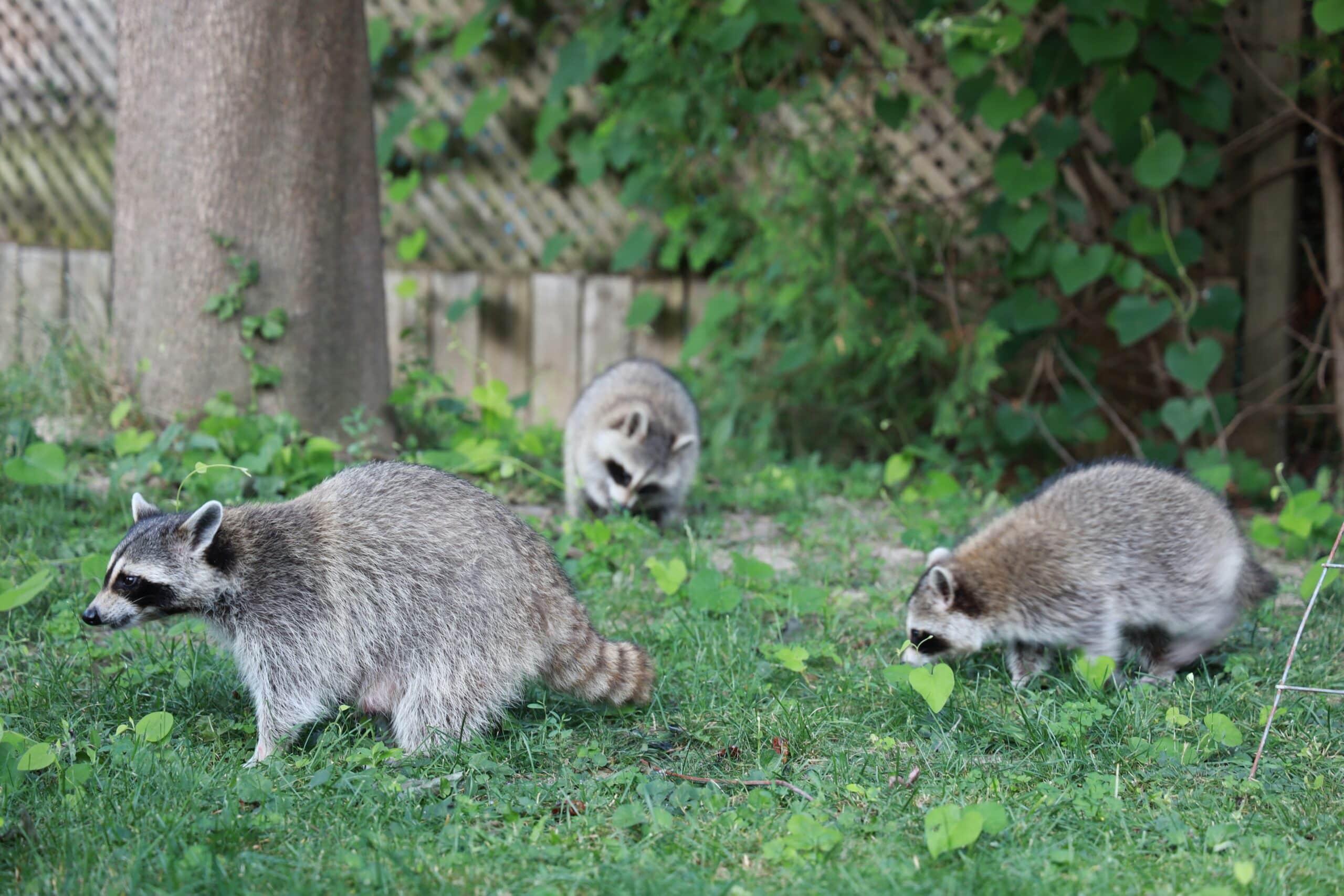Need Raccoon Removal ASAP?
Give us a call for 24/7 Emergency Wildlife Control & Removal in Dallas/Fort Worth.
(817) 606-7607Contact UsContact UsAs the winter season ends and the warmth of spring comes to North Texas, residents may notice an increase in wildlife activity, particularly raccoons. Raccoons, known for their intellect, adaptability, and mischievous nature, become increasingly active in the spring months when they emerge from their winter habitats in search of food, mates, and ideal nesting areas. Understanding the elements that influence raccoon activity in the spring can help homeowners avoid raccoon infestations and determine whether to seek the assistance of wildlife control services to properly resolve any issues.
Seasonal Patterns
Raccoons in North Texas undergo a transition from hibernation to increased activity throughout the spring season. As temperatures rise and daylight hours extend, raccoons become more active at dawn and dusk, seeking food and breeding opportunities. The availability of food sources such as insects, fruits, and small prey influences raccoon behavior, encouraging them to investigate their surroundings and expand their territory.
Raccoon Mating Season
In North Texas, raccoons normally have their breeding season from January to March. During this period, male raccoons may move widely in search of receptive females, resulting in more sightings in residential areas. Female raccoons, on the other hand, may make dens in attics, crawl spaces, or hollow trees to give birth and rear their offspring, known as kits. Nesting females may cause confrontations with homeowners who want to safeguard their property from raccoon damage and potential health risks.
Foraging Behavior
As spring arrives, raccoons become more active in their search for food, scavenging for a variety of edible items in urban and suburban surroundings. Trash cans, compost bins and garden produce are all enticing targets for hungry raccoons looking to replenish their energy stores after the long winter months. Their ability to open containers and gain access to food sources can result in property damage and nuisance behaviors that cause annoyance for homeowners.
Nesting and Denning
Female raccoons may seek quiet nesting spots in residential areas to give birth and nurture their young, such as attics, chimneys, and crawl spaces. Human constructions are desirable nesting locations for raccoons due to the warmth and shelter they give, which may lead to problems with homeowners. Raccoon nests and dens can destroy structures, create fires, and offer health problems due to feces, urine, and parasites.
When To Call Wildlife Control Services
Recognizing the symptoms of raccoon behavior and knowing when to seek professional help is critical for homeowners dealing with raccoon difficulties. Consider contacting wildlife control services if you see the following indicators:
- Frequent sightings of raccoons on your property, particularly during daylight hours.
- Signs of property damage, such as torn shingles, broken insulation, or overturned trash cans.
- Strange noises coming from attics or crawl spaces, which indicate the presence of raccoon nests or dens.
- Concerns about the health dangers linked with raccoon excrement, urine, and parasites.
- Unable to dissuade raccoons using preventive measures or do-it-yourself solutions.
By hiring the help of wildlife management professionals, homeowners may successfully and safely treat raccoon infestations, limiting property damage and lowering dangers to human health and safety. Wildlife management services may remove raccoons in a humane manner, apply exclusion measures to prevent re-entry, and advise on habitat restoration and preventive methods to reduce future incidents.
Ultimately, the approach of spring in North Texas results in increased raccoon activity as these resourceful mammals emerge from their winter hibernation in search of food, mates, and nesting locations. Understanding raccoons’ seasonal routines and behaviors might help homeowners predict potential conflicts and take proactive steps to protect their homes. Knowing when to contact wildlife control services is critical for resolving raccoon-related concerns quickly and effectively, promoting peaceful cohabitation between humans and wildlife in urban and suburban settings.
Are you in need of raccoon removal? Our friendly operators at Dallas Fort Worth Wildlife Control are available now at (817) 606-7607. Find out more about our wildlife removal in Arlington and Fort Worth, TX.


